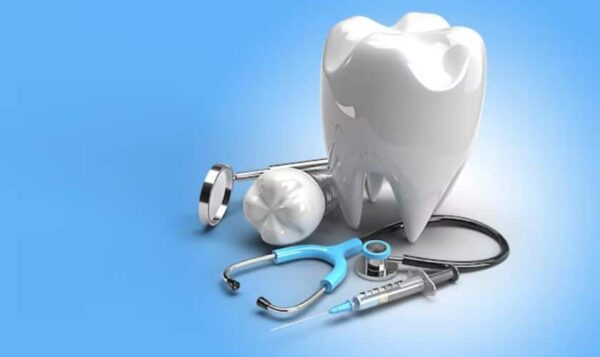Welcome to our blog! Today, we’re diving into a topic that affects everyone: dental health. Whether you love flashing your pearly whites or dread the thought of a dental appointment, it’s important to understand how much our oral health impacts our overall well-being.
From maintaining a confident smile to preventing serious medical conditions, caring for our teeth and gums is crucial. In this article, we’ll explore the basics of dental health, discuss common dental problems, provide tips on protecting your oral hygiene, and highlight the best ways to treat any issues.
So, let’s get started on this journey towards better dental health!
The Basics of Dental Health
Taking care of our dental health goes beyond just having a sparkling smile. It plays a vital role in our overall well-being. So, what exactly does it mean to have good dental health?
First and foremost, proper oral hygiene is key. This includes brushing your teeth at least twice daily with fluoride toothpaste and using floss or interdental cleaners to remove plaque between teeth.
Regular visits to the dentist are also essential for maintaining optimal dental health. Dentists can detect early signs of cavities, gum disease, and other issues that may not be visible to the naked eye.
A balanced diet is another important aspect of dental health. Limiting sugary snacks and beverages can help prevent tooth decay while consuming nutrient-rich foods supports healthy teeth and gums.
Avoiding tobacco products is crucial for both oral and overall health. Smoking or chewing tobacco increases the risk of gum disease, stains teeth, causes bad breath, and even leads to more serious conditions such as oral cancer.
Staying hydrated by drinking plenty of water throughout the day helps stimulate saliva production – nature’s way of protecting your mouth against harmful bacteria.
By following these basic principles of dental health daily, you are setting yourself up for improved overall wellness – now that’s something to smile about!
Types of Dental Problems
When it comes to dental health, various types of problems can occur. One common issue is tooth decay, which happens when plaque builds up on the teeth and produces acids that erode the enamel. This can lead to cavities and even tooth loss if left untreated.
Another dental problem is gum disease, also known as periodontal disease. This occurs when bacteria in plaque infect the gums, causing inflammation and eventually leading to gum recession and bone loss. It’s important to address gum disease early on to prevent further damage.
Tooth sensitivity is yet another dental issue that many people experience. This occurs when the protective layer of enamel wears down, exposing the nerves underneath and causing discomfort or pain when eating or drinking hot or cold substances.
Furthermore, malocclusion refers to misalignment of the teeth or jaws, which can result in difficulty biting and chewing food properly. It can also affect speech clarity and impact overall oral health.
Oral cancer is a serious condition that affects various parts of the mouth, including lips, tongue, cheeks, the floor of the mouth, etc.; if not detected early, it could be life-threatening.
These are just a few examples of the many dental problems one may encounter throughout life. Prioritizing regular check-ups with your dentist for early detection and prevention strategies is essential. Maintaining good oral hygiene practices at home, such as brushing twice daily with fluoride toothpaste and flossing regularly, can help protect yourself from these issues.
The Best Ways to Treat Dental Problems
When it comes to treating dental problems, several effective methods can help improve your oral health. One of the most common treatments is dental fillings. This involves removing the decayed portion of a tooth and filling it with a material such as composite resin or amalgam.
Another popular treatment option is root canal therapy. This procedure is used to treat infected or damaged tooth pulp. During a root canal, the dentist removes the infected tissue, cleans and disinfects the area, and then seals it with a dental crown.
Extraction may be necessary for more severe cases of tooth decay or damage. While losing a tooth may seem daunting, there are options for replacing missing teeth, such as dental implants or bridges.
Gum disease can also be treated through deep cleaning (scaling and root planing), medication (antibiotics), or gum surgery in more advanced cases.
Regular dental visits for professional cleanings and check-ups are essential for good oral health. Your dentist will be able to identify any potential issues early on and provide appropriate treatment before they worsen.
In addition to these professional treatments, practicing good oral hygiene at home is crucial. Brushing twice daily with fluoride toothpaste, flossing regularly, using mouthwash, and maintaining a healthy diet all contribute to preventing dental problems from occurring in the first place.
Following these best practices for treating dental problems and taking proactive steps toward preventive care can ensure long-term oral health and minimize the need for extensive treatments. So, make sure to prioritize your dental health today!
Dental health plays a crucial role in our overall well-being. It affects not only our oral health but also has an impact on various aspects of our daily lives. By properly caring for our teeth and gums, we can prevent dental problems and enjoy a healthier life.
Remember, a healthy smile leads to a healthier you! So take care of your teeth and enjoy all the benefits of having excellent dental health.
